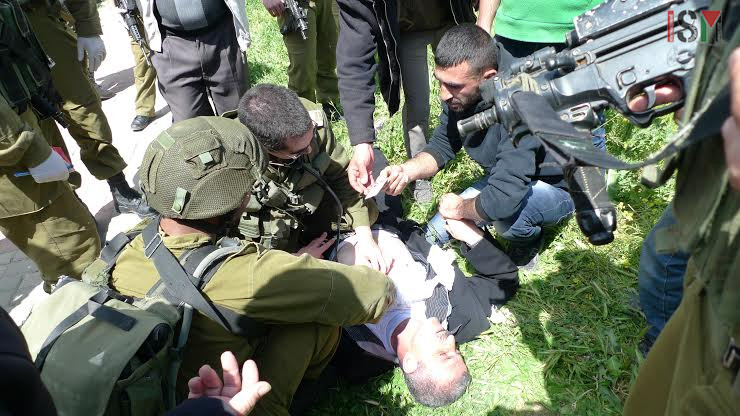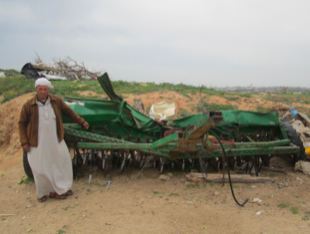Author: ISM Media
-
Peaceful tree planting attacked by settlers and soldiers, two hospitalised and one arrested
1st April 2015 | International Solidarity Movement, Khalil Team | Hebron, Occupied Palestine On March 31st around 40 Palestinian children and adults gathered in Hebron near Qurtuba school, a Palestinian school in the H2 neighbourhood of Tel Rumeida, to plant trees in commemoration of Palestine’s Land Day. Israeli extremist settlers from the illegal settlements in Al-Khalil (Hebron) attacked…
-
Last summer’s Israeli aggression is sending Gaza back to the Middle Ages
31st March | Miguel Hernández | Gaza, Occupied Palestine Zionist colonisers destroy the tools for self-sufficiency of Palestinians in Gaza Months after the last massive Israeli aggression against the Gaza Strip, thanks to the social and independent media, everyone has read news and seen pictures of the attacks from the zionist regime against residential buildings, United Nations shelter-schools, hospitals, ambulances, mosques,…
-
Big turn out and high spirits at Wadi Fukin Land Day olive tree planting and protest
31th March 2015 | International Solidarity Movement, al Khalil Team | Wadi Fukin, Occupied Palestine On Monday March 30th about two hundred people commemorated Land Day in the village of Wadi Fukin. The protest, which involved planting olive trees was a response to Israeli theft of village land. After midday prayer around two hundred Palestinians and internationals…



